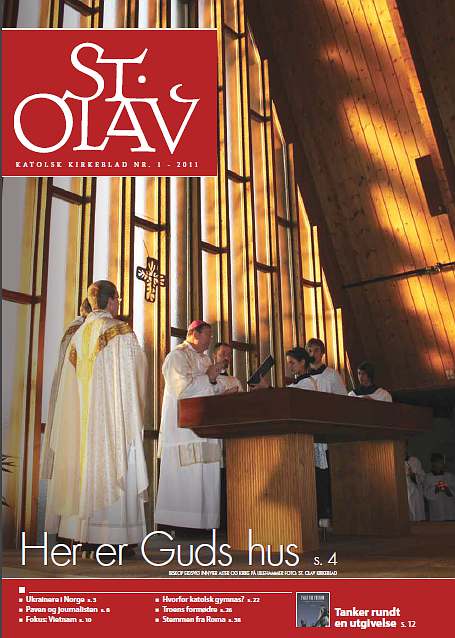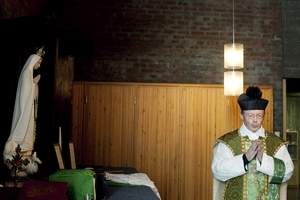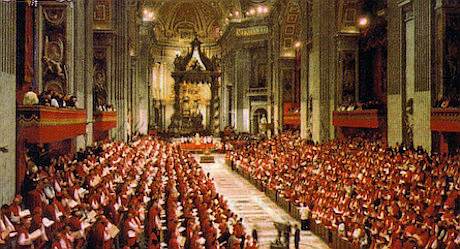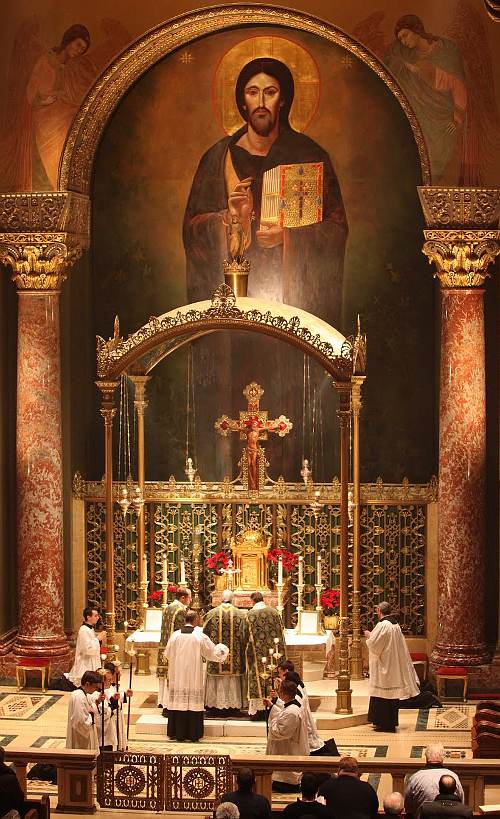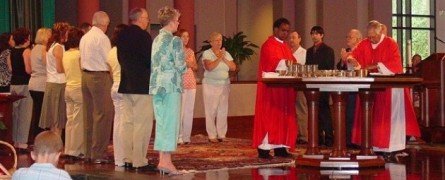Heldigvis bruker vi på norsk ikke uttrykk som «presider» ved en messe (som de gjør på engelsk); vi sier vanligvis celebrant, eller «presten som feirer messen». Vi ser heller ikke ofte de ekstremt «teatralske» messen vi kan se i utlandet – jeg så selv min aller verste messe i Portland, Oregon, for 12-13 år siden. Der var presten en flink og energisk skuespiller, som dro hele forsamlingen til seg med stemme, blikk og kroppsholdning gjennom hele messen, også gjennom hele den eukaristiske bønn.
Men også hos hender det nok ganske ofte at presten føler han bør engasjere menigheten i ganske stor grad gjennom messens gang. Slik var det ikke tidligere; det vet forhåpentligvis de fleste – og jeg er gammel nok til å huske at det heller ikke var slik i Den norske lutherske kirke.
Michael Davies tar opp dette temaet på en interessant måte i kapittel 8 i sin bok Pope Paul’s New Mass, han kaller kapittelet «THE PRESIDENT AS ACTOR» og han åpner det slik:
In 1967 Father Robert V. Hovda wrote an article in Worsbip entitled «Style and Presence in Celebration.» It is not an exaggeration to claim that this article has had a greater influence on the liturgical reform in the English-speaking world than the Vatican II constitution on the Sacred Liturgy itself. Anyone who takes the trouble to study the Liturgy Constitution carefully will discover that its contents appear totally unrelated to the revolution enacted in its name. … Father Hovda’s article is a case in point. It has been quoted or paraphrased time and again in the writings, lectures, and workshops of other revolutionaries. When he wrote it in 1967 there were still sufficient priests and laymen with a Catholic mentality to regard the author and his ideas as crazy. But in 1980 it is anyone who questioned the theories of Father Hovda who would be regarded as a madman.
The most evident characteristic of Father Hovda’s article is that its entire ethos is uncatholic where it is not actually anti-Catholic. There is nothing comparable in the 2,000 year history of the Church. I have shown in Pope John’s Council that the liturgy is, in its essence, something done by Christ. It is the service par excellence which He offers for His Church today. During the Mass His Sacrifice is made present upon the altar. The Divine Victim is offered to God the Father with every possible solemnity by priest and people …
Because the celebrant is acting in persona Christi, because he freely chooses to make himself Christ’s instrument, it is not surprising that his own personality should be submerged into that of his Divine Master during the course of the liturgy, the public work of Christ. In the traditional Mass the rubrics insured the celebrant subordinated his personality to the celebration. His every word, every gesture, was meticulously regulated. This is why, providing the rubrics were observed, a badly celebrated Mass was almost impossible. Hurried, unedifying celebrations may have occurred-but they were certainly the exception. The rubrics insured that normally every celebration was recollected, prayerful, and dignified. The fact that much of the Mass was said in a very low voice made no small contribution to this edifying situation. Before the Council it would have been most unusual to hear a member of the congregation remark that a Mass bad been either dull or lively. The Mass was the Mass, and that was that. … It was the Mass that mattered, not the «style and presence» of the celebrant. This is no longer the case for the disciples of Father Hovda – and they are legion. The Mass is seen by them as little more than a vehicle for displaying their histrionic talents.

